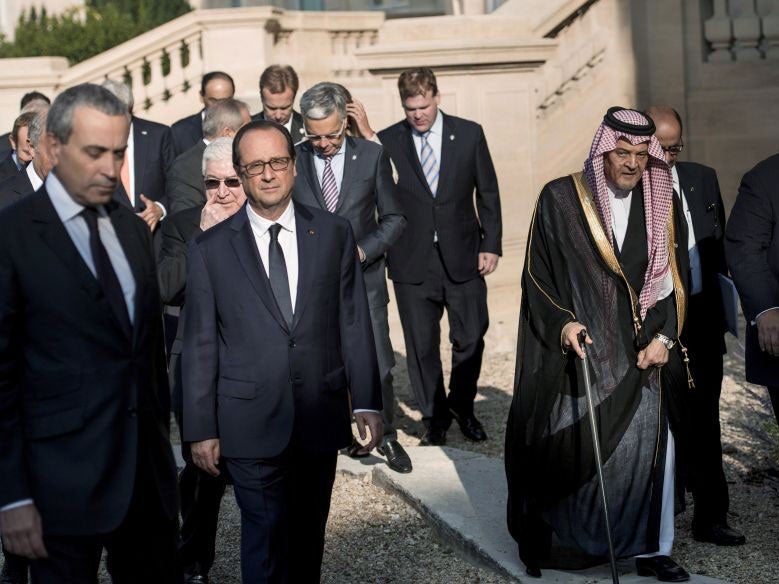What's going to happen in Syria and Iraq? A guide to the new anti-Isis coalition's global strategy
Yesterday's meeting in Paris marks a significant shift towards intervention

The fight against the so-called Islamic State (IS) has stepped up today with Philip Hammond and diplomats from over 30 countries meeting in Paris to discuss the shape of the coalition’s military response to the terrorist organisation in Iraq and Syria.
Who is involved?
Importantly, there is a very broad coalition featuring regional powers such as Saudi Arabia, Qatar and Turkey, who will be key allies for the US and UK in whatever action is taken. These three key regional powers haven't got clean hands in the ongoing crisis in Iraq and Syria. Two of them have been accused of directly or indirectly funding IS, and another not policing their borders well enough to prevent the free transit of foreign fighters to the terrorist organisation.
But crucially for the credibility of the operation, Iran and Syria have not been allowed to join the coalition, due to their hand in the Syrian civil war and the fear that their involvement would exacerbate the sectarian divides in the region.
Why have they joined together?
One of the lessons learnt from the wars in Iraq and Afghanistan in the last decade is how terrorist organisations will exploit Western foreign policy decisions for their recruitment and radicalisation purposes. Any military strategy pursued in the region should consider the impact on counter extremism and should pre-emptively counter IS propaganda. Having three Sunni Muslim-majority countries as part of the coalition is therefore essential to challenge the myopic Islamist narrative that “the West is at war with Islam.”
How should they go about tackling IS?
There continues to be little public or governmental support for putting boots on the ground due to the war weariness of Western populations. As al-Qa'ida thrived in spite of the last military offensive, there is the general sense that it doesn't affect us, so we would do well to pull up the drawbridge.
This is the right conclusion but for the wrong reasons. A ground offensive against al-Qa'ida failed in part because they were nomadic insurgents and had surrounding populations or governments who were supportive enough to provide a safe haven. However, IS have territory to defend and, as worrying it is that they control a territory the size of the UK, it could be an element of their downfall. Although their proclivity towards martyrdom and the fact that they know the terrain better than the US-led coalition are good reasons not to pursue a ground offensive.
The scaling up of airstrikes, targeting key strategic strongholds such as the border areas and the oil, would be an effective way of playing to the strengths of the coalition and degrading (rather than destroying) the capabilities of IS. It must go hand in hand with supporting the Iraqi government’s ground troops and the Kurdish Peshmerga forces. Airstrikes can therefore be followed by a two front ground offensive with military aid and strategic support from the coalition.
Will it work?
To be effective, the coalition needs to look beyond military cooperation. Pressure must be put on all members to deprive IS of funds and fighters. To tackle their funds, we need to stop all oil trade with them and clamp down on citizens who finance the group. And to address their fighters, we need to improve border control, coordinate the region's security services, and crucially develop and disseminate counter-narratives to extremism.
Moreover, we cannot ignore the ongoing actions of other groups in Syria and must not co-opt the Syrian regime or Jabhat al-Nusra in the fight against IS, for both are unsavoury bedfellows. Beyond the military action, we must have a roadmap to peace and stability in Iraq and Syria that considers the sectarian fault lines in the area. We also need to appreciate that failure to implement this will leave a political vacuum, the kind of which Islamist organisations have traditionally filled all over the region.

Join our commenting forum
Join thought-provoking conversations, follow other Independent readers and see their replies